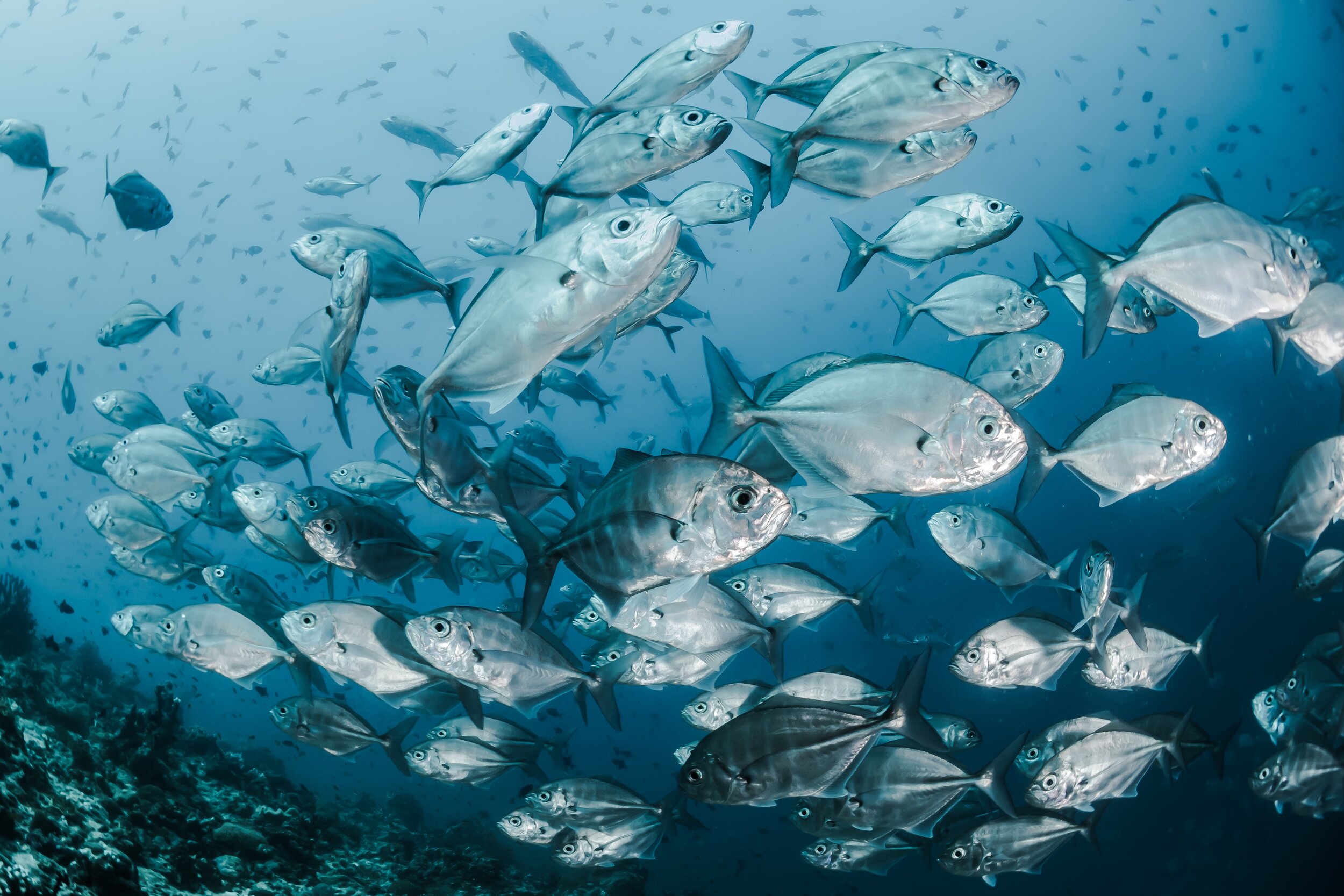
Rich in vitamins, rich in minerals
Because of their distinctive composition, Fish Protein Concentrate (FPC) and fishmeal are superior ingredients for fish nutrition.
Marine ingredients in aquafeed are derived from forage fish (Small Pelagic fish species) and marine organisms such as fish, krill, shellfish and algae. These are important for farmed fish that require a high-quality, nutritionally complete, balanced diet to grow rapidly and remain healthy.
Essential for fish health
Marine ingredients are exceedingly rich in some of the minerals and vitamins that are known to be essential for fish nutrition and health. They have an excellent amino acid balance, directly reflecting the amino acid balance in fish, and therefore very similar to the needs of carnivorous species.
Quality feed mens quality food
Many of the vegetable-based ingredients do not contain these compounds at the same levels, largely because they reflect the need of plants.
Marine aquafeed is rich in vitamins such as the B-group vitamins, especially choline and niacin, and it is also rich in various minerals important for farmed animal health including calcium, phosphorus, and selenium. These micronutrients are not only essential for the physiology and health of farmed fish, but for the consumer as well (IFFO, The Marine Ingredients Association).
Marine vs. plant based
Marine ingredients
Because of their distinctive composition, Fish Protein Concentrate (FPC) and fishmeal are regarded as superior sources of protein for farmed fish. Together with fish oil they are the most nutritious and digestible ingredients in fish feed, as well as a major source of omega-3 fatty acids.
Fish oil is obtained through centrifugation of preserved and heated raw materials (fish silage). FPC is a high viscosity liquid obtained after evaporation of the remaining silage liquid. Fishmeal is a powder obtained after cooking, pressing, drying and milling fresh raw fish
All three products are produced from whole fish, fish trimmings or other fish processing by-products for which there is little or no demand for human consumption.
Plant ingredients
Plant proteins (soybean meal or corn protein meal) are used today to partially replace FPC or fishmeal in aquafeed, not mainly because of the quality, but because of its lower price.
There are major challenges in using plant-based proteins to the current extent that one does today, e.g., in the salmon feed.
Soya in aquafeed is a major part of the soya industry, which is considered to be responsible for serious deforestation of rainforests.
Key Facts that support the global need for quality aquafeed:
-
10,9 bill.
Estimate for the world’s population by 2050 (Source: UN). .
-
30%
The predicted rise in demand for fish by 2050 (Source: UN)
-
100%
Required growth in aquaculture by 2050 to meet the demand
-
63.8 bill.
USD value of the global aquafeed market in 2019 (Source: Grand View Research). .
-
527%
Rise in global aquaculture production from 1990 to 2018
-
20%
Increase in the ocean’s yield if ending overfishing and rebuilding depleted stocks.


